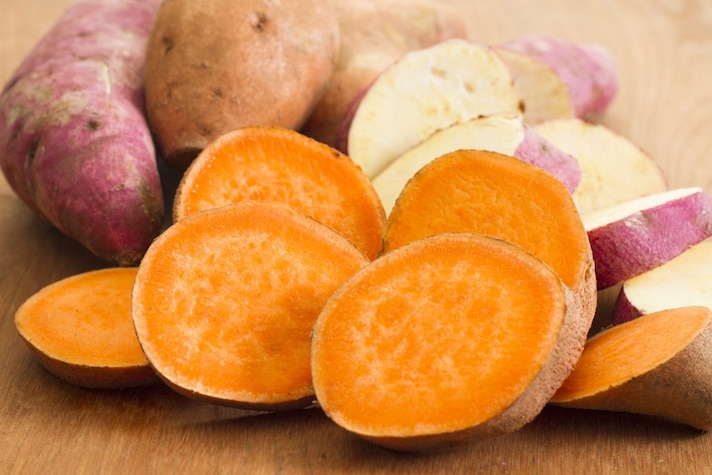Yams vs. Sweet Potatoes: What’s the Difference and What Are Good For
Yams and sweet potatoes are different root vegetables from separate botanical families, each with unique flavors, textures, and nutritional benefits. While sweet potatoes are richer in nutrients like Vitamin A and C, yams are starchier and less sweet. Both can be used in various culinary applications, but they are not perfect substitutes for each other due to their different flavor profiles.
;Resize,width=742;)
In the world of root vegetables, yams and sweet potatoes are often lumped together, leaving many to believe they are interchangeable. While they may look somewhat similar, these two vegetables come from different botanical families, offer unique flavors and textures, and have distinct nutritional profiles. This article will explore the key differences between yams and sweet potatoes, delve into their health benefits, and answer commonly asked questions: Which is better—a sweet potato or a yam? And can one be substituted for the other?
Botanical Differences
Yams and sweet potatoes are not just different species; they come from entirely different botanical families. Yams belong to the Dioscoreaceae family and are native to Africa and Asia. They are generally starchier and have a drier texture, with rough, scaly skins.
Sweet potatoes, on the other hand, come from the Convolvulaceae family and are indigenous to Central and South America. They have smoother skin and are available in a variety of colors, including orange, purple, and white.

Nutritional Profiles
Sweet potatoes are nutritional powerhouses, rich in fiber, Vitamin A, Vitamin C, and manganese. They also offer complex carbohydrates. Yams, while a good source of fiber and potassium, lag behind sweet potatoes in overall nutrient density.
Culinary Uses
Though both yams and sweet potatoes can be prepared through similar cooking methods—boiling, baking, roasting, or frying—their distinct flavor profiles make them suitable for different dishes. Yams are less sweet and more starchy, which makes them ideal for savory dishes. Sweet potatoes, due to their natural sweetness, can be used in both savory and sweet recipes.

Health Benefits
When it comes to health benefits, sweet potatoes often steal the spotlight. They are rich in antioxidants and have anti-inflammatory properties. They're good for eye health, boost immunity, and may even help regulate blood sugar levels. Yams are not as well-researched but are believed to be beneficial for digestive health due to their high fiber content.
Which Is Better: A Sweet Potato or a Yam?
Determining which is better largely depends on individual dietary needs and culinary preferences. If you're looking for a nutrient-dense option, sweet potatoes are the better choice. However, if you prefer a less sweet, starchy option, then yams may be more to your liking.
Can I Substitute Yams for Sweet Potatoes?
While yams and sweet potatoes can sometimes be used interchangeably in recipes, it's essential to consider the dish's desired texture and flavor. Yams are starchier and less sweet, so they may alter the final result. Always make sure to adjust seasonings and cooking times accordingly.
Confusion in the Marketplace
The terms "yam" and "sweet potato" are often used interchangeably in the U.S., particularly in grocery stores where orange-fleshed sweet potatoes are frequently labeled as yams. To ensure you're purchasing the correct item, look for clear labeling or ask the store staff for clarification.
;Resize,width=767;)

;Resize,width=712;)
;Resize,width=712;)
